[et_pb_section bb_built=”1″][et_pb_row][et_pb_column type=”4_4″][et_pb_text _builder_version=”3.0.101″ background_layout=”light” text_line_height=”1.4em”]
April 4, 2018 is a somber anniversary, marking 50 years since the assassination of Dr. Martin Luther King, Jr. The University of Arkansas Libraries remembers his life and contributions of that great man.
To commemorate the historic milestone, the University of Arkansas joins with universities, museums, and other institutions around the country to ring bells 39 times at 6:01 pm. on April 4th. That will be a toll of the bells for every year of the life the great American who sacrificed his life for the dream of racial and social justice. See the National Civil Rights Museum’s MLK 50 “Day of Remembrance” site for more information on the events taking place.
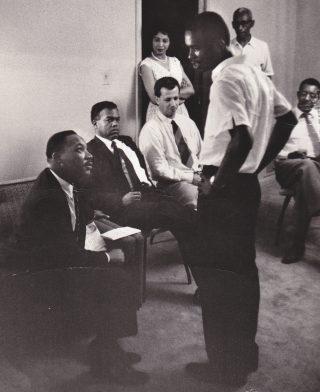
Dr. King’s death shook the nation at a time when racial violence, riots, escalation of the Vietnam War and anti-war protests, and increasingly strident calls for social justice and greater civil rights for all Americans resulted in a tense and deeply divided political climate in the United States.
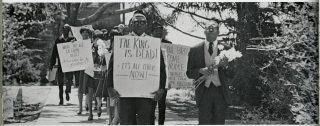
Although Fayetteville and the University of Arkansas did not experience rioting or explosions of violence after Dr. King was shot in Memphis, his death did have a profound effect on the campus. Still struggling with full integration and greater opportunities for black students, the coverage of Dr. King’s death and student memorialization in the Arkansas Traveler student newspaper, along with what many black students viewed as the hands off approach of University administration to racial issues, resulted in more active calls for change on campus. In particular, an editorial published in the Traveler criticizing the amount of coverage devoted to Dr. King, and the Traveler’s subsequent refusal to print a rebuttal, resulted in organized demonstrations by black students.
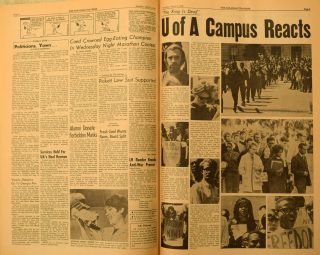
Protests on campus after Dr. King’s death directly influenced the founding of the University’s first black student organization, Black Americans for Democracy. Historical materials preserved for the study of Black American for Democracy are available in Special Collections as part of the University Archives.
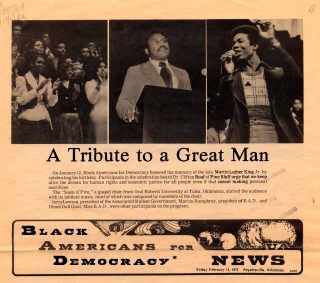
The University Libraries has also digitized and made freely available the newspapers of Black Americans for Democracy published between 1971 and 1977. To learn more about B.A.D., African American student life on campus during the decades after integration, and to read the newspapers, including the earliest publication of the famed Arkansas writer, E. Lynn Harris, please visit the BAD Times Collection.
Arkansas had been a focal point of the civil rights movement since the Central High School crisis in 1957. Special Collections holds many archives and manuscript collections invaluable for the study of the civil rights era and school integration in Arkansas. There are several archival resources in the Libraries with material about the life and legacy of Dr. King, including the resources of the Arkansas Council on Human Relations, the Daisy Bates Papers, and the papers of Pine Bluff photographer Geleve Grice.
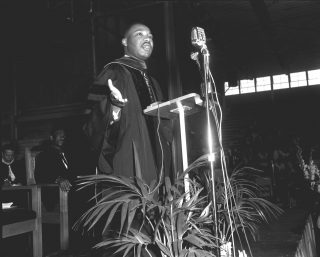
Arkansas’s Governor, Winthrop Rockefeller eulogized Dr, King, along with white and black leaders from across the state and the steps of the state capital in Little Rock. As selection of resources to aid in the study of the long struggle for civil rights in Arkansas, including documents from Special Collections and photographs from archives across the state, are available in the Libraries’ digital exhibit, Land of (Un)Equal Opportunity.
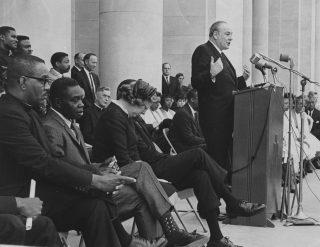
For more on studying civil rights and Arkansas’s history and culture, please contact Special Collections, 479.575.7251 or specoll@uark.edu.
[/et_pb_text][/et_pb_column][/et_pb_row][/et_pb_section]
